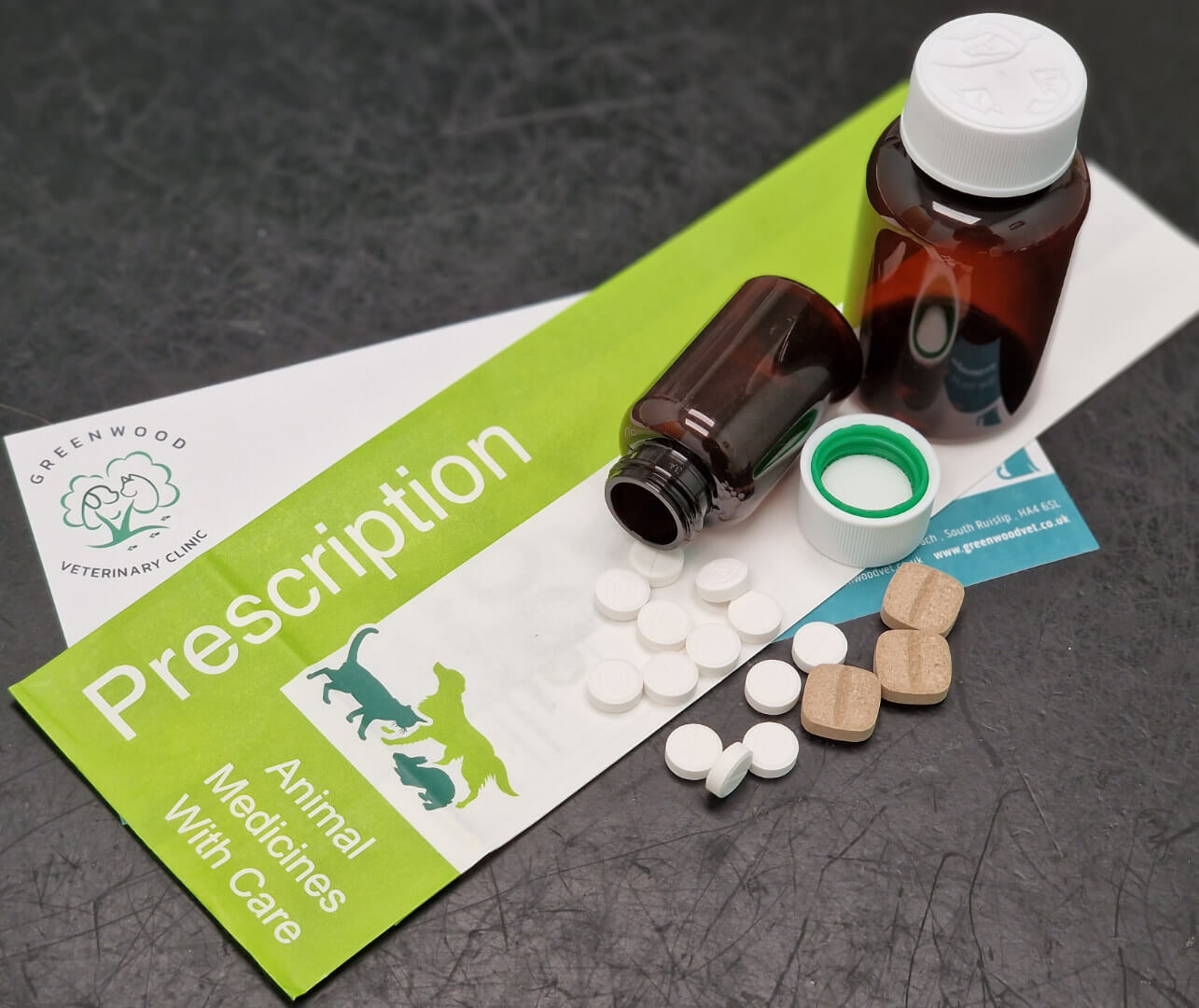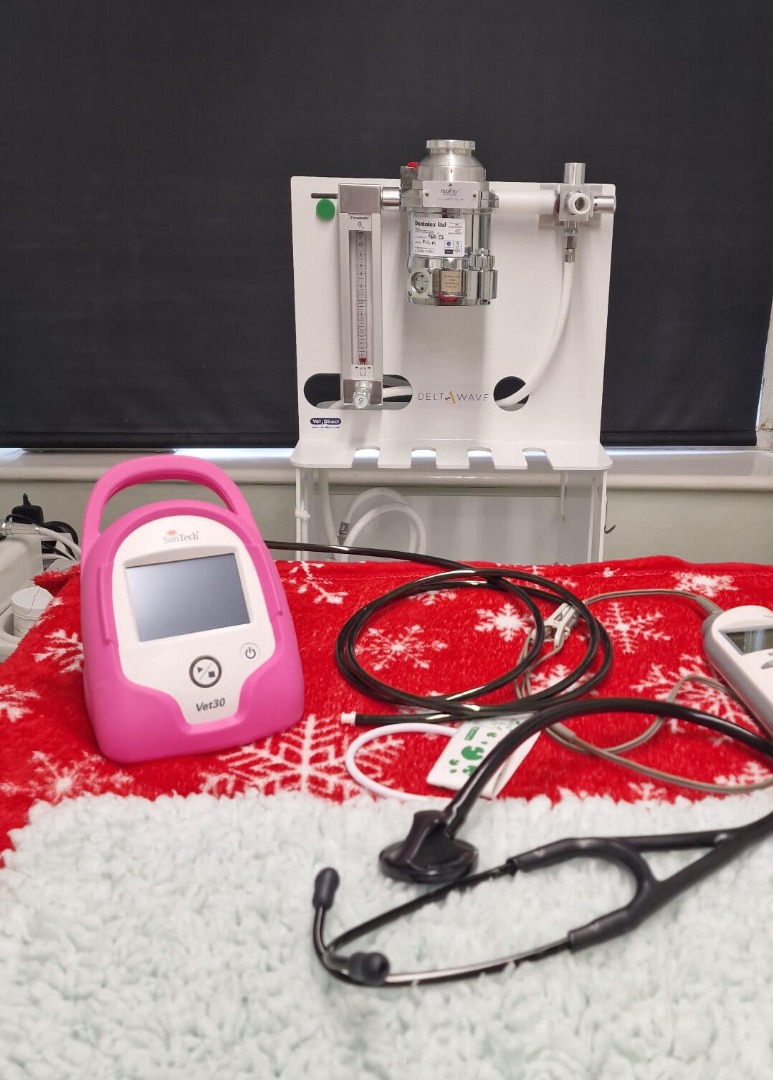How to order your pet’s medication
Please allow at least 48 hours for us to have your prescription ready. This gives us time to check our patients history/dosage and order the medication if we do not have it in stock, as well as dispensing the medication.
Please note - Online requests are not checked or processed over the weekend or on Bank Holidays. If you request a prescription on a Friday it may not be ready for collection until the following Monday.
Certain medications are prescribed for long-term treatment of your pet. This means they need to be dispensed by a veterinary surgeon for ‘an animal under their care’ who has to take legal and ethical responsibility for the correct use of these medicines including regular health checks.

In most cases your pet will have to be seen by the veterinary surgeon every 6-12 months in order for you to obtain a repeat prescription.
The reasons for this include:
-
Ensuring the pet is not suffering from any side-effects
-
Ensuring the appropriate dosages for the weigh of your pet
-
We are legally required to ensure your pet is still ‘under our care’
-
Ensuring that the medication is still appropriate and effective and if needed discussing other possible alternatives
Please note, there is a charge for a written prescription and we do not routinely authorise repeats of either antibiotics or ear-drops.

From 1st September 2023, the Royal College of Veterinary Surgeons (RCVS, which is the regulatory body for the veterinary profession in the UK) has introduced new guidance on prescribing prescription-only medicines.
The full guidance can be found here.
Whilst we continue to have some very significant concerns about the welfare impact of some of the changes for the animal population as a whole, the most significant effect for our clients and their pets of the new guidance is the requirement that a physical examination of the pet has to be performed every time any anti-infective (i.e. antibiotics, antifungals or antivirals) are prescribed. This includes topical preparations for ear and eye drops and some skin creams.
The theory behind this guidance is to try and ensure responsible antimicrobial use and reduce the veterinary impact on the broader issues of global antibiotic resistance given the changes in ‘under care’ regulations.
What this means in practice is that your pet will have to come in for an in-person consultation every time;
-
We need to prescribe medication for an ear issue (as most treatments contain antibiotics and antifungals)
-
We need to prescribe antibiotics for any skin problem, even if it’s a chronic problem
-
We suspect a urinary tract infection (remote/online consultation and urine analysis/culture are no longer sufficient)
-
We suspect a gastrointestinal infection (remote/online consultation and faecal analysis/culture are no longer sufficient)
We already do this most of the time anyway as part of responsible prescribing, so hopefully, nothing will change for most people!
Initially, parasite treatments were included within these strict regulations as they are technically anti-infectives; however, this has been paused (until January 2024) following significant concerns from the profession.
For long-term prescription medication that is not an anti-infective, our usual policy of requiring an examination at least every six months (or sooner in some less stable or more serious cases) continues to apply.
The consultations are charged at our usual fees, depending on the type of consultation.
If you have any questions or concerns about the new guidance, RCVS can be contacted on:
020 7202 0789
or
advice@rcvs.org.uk